elkrchr
Well-known member
What a grand adventure! Thank you for sharing that experience with us Hunt Talker's.
Follow along with the video below to see how to install our site as a web app on your home screen.
Note: This feature may not be available in some browsers.
More on the Ibex hunt in Tajikistan
From: Debby Perry (Wife of Joe –Pierre)
Approximately one year ago my husband Joe (Pierre) bid on an Ibex hunt in Tajikistan at the annual Wild Sheep Convention in Bozeman, Montana. After the reality hit, I started asking questions like “Just where is Tajikistan?” And then my next questions were “Do you want me to go with you?” “What is an Ibex?”
Well after looking at the map and doing a little research on Tajikistan, I decided it looked like an interesting adventure. So on January 29, 2019 Joe, me, Robert, and Val Wood boarded a plane in Bozeman for Tajikistan. As Robert mentioned we spent many hours in airplanes and airports. After arriving in the capital city Dushanbe we got into vehicles where we rode another 14 hours or so along the Pamir Highway, until we were stopped by an avalanche. On Friday February 1 we resumed our travels and finally arrived at the small village of Khijez.
The drive from Dushanbe to Khijez was fascinating. We drove through long tunnels and small villages in the early morning. I noticed small children, some accompanied by their parents walking along the road. Many of these children were little girls wearing bright pink coats with backpacks. It looked like they had quite a distance to walk in order to reach their school. I also noticed that they used rocks for their houses, barns, fences, pens, trails, and roads. Much of our trip was along the border with Afghanistan. I noticed many parts of Afghanistan appeared to be without electricity.
At some point on this long journey I new I would need to use a bathroom. So our driver Hofiz pointed me in the direction of an outhouse on one of our stops. I entered this facility which had no door and I when looked inside I saw there was a hole about 10 inches wide and 12 inches long in the ground. The smell was of course horrible. I walked out thinking to myself “No this can’t be what I have to use!!!” But I came to my senses and said to myself “Just handle it!!!” Rule #1 Always carry toilet paper!!!! Rule #2 NO WHINING
Khijez
Khijez is the small village where we stayed from February 1, 2019 to February 8, 2019. Khijez is located in the Bartang Valley along the Bartang River, and sits about 7,000 feet high. The population is about 200 people. It has an elementary school and a small medical facility. There are no stores, gas stations, or businesses of any kind. For the next seven days we stayed with a wonderful family who welcomed us into their home. Dilshod, the wife, mother and village nurse prepared and served three meals a day for us. As Robert mentioned we had good hearty meals with meat as the base, and vegetables raised in their gardens. Rule #3 Don’t eat too fast as you wil get a second plate of food to eat before you know it. Dilshod’s husband Goib was always busy tending to the animals and thankfullly keeping the main part of the house warm with wood heat. They have a son name Abdullo (age 11) and a daughter (15) who lives in another village to attend high school.
An interpretor named Purdil was assigned to our group. His assistance was valuable to us. Dilshod was quite proficient in English also.
Robert mentioned that their was no running water, so a trip to the outhouse was our option. Darn cold in the middle of the night!!!! I like Robert was able to take one shower, and it was a chilling experience.
I will be the first to admit that seven days in the small village of Khijez in the middle of winter got long at times. Joe and Robert were coming and going from their Ibex hunts. I intended to accompany Joe, but realized after being there a couple days and seeing and hearing about Robert and Joe’s experiences with high altitude, lots of snow, and the rough steep terrain that it was best for me to stay behind. I am disappointed that I was unable to see an Ibex and snow leapord in the wild, but also relieved that I made the choice I did.
Our experiences in Khijez
The people of Khijez were friendly, outgoing, sincere, and hard workers. The woman are not only wives and mothers, but most also have other jobs. They are proud to say education is important with many children going on to live in other villages to further their learning in high school and college. This is especially true of young women.
When they heard I was a retired teacher, they asked me to come help teach English to about seven men and women who met for one hour every night six nights a week. This proved to be a very rewarding experience for me, and a highlite of my trip.
We stayed in extra rooms at Goib’s and Dilshods house. The only heat was a floor heater. We slept on pads on beautiful woolen rugs on the floor. There was no furniture in the room. I usually wore about three layers of clothing; a base layer, something wool, and then a fleece jacket. I spent a lot of time inside my sleeping bag by the floor heater in our room. Val and I entertained ourselves by reading, listening to books and writing in journals. Val was smart and brought along some movies to watch also.
Val and I were fortunate to meet a young lady name Dilnoza. She spoke some English and took us on a tour of Khijez one day where we got to see the school and visit the teachers and students in the classrooms. As you will see from the pictutres, the classrooms were bare basics, with dirts floors and heat from wood stoves in each room.
They were somewhat embarassed of their school, which they said was built in the 1930’s. Dilnoza also took us to a home of some of the local women where of course they offered us tea, dried fruit and nuts. We had an opportunity to visit with these women about their life in this village and their customs and traditions. Dilnoza, our guide is an accountant for her fathers construction business. She has a strong desire to travel
I noticied after being in Khijez for only a couple days, that people were so friendly and outgoing. One man approached me and asked “How long are you staying here?” I told him I was with my husband who was hunting
Then he said “What are you doing here in the winter, you really should come in the summer!”
I ask myself “If given the opportunity to go back would I?”
Most likeley not in the winter. But I have to admit I think it would be a wonderful place to see in the summer.
My final thoughts are that Tajikistan is a beautiful mountainous landlocked country with spectacular views and fast flowing rivers. The people are warm and friendly. I am glad we were able to spend a couple days in the capital city of Dushanbe. It was such a contrast from our experience in the small mountain village of Khijez. One of the highlights was going through the Tajikistan National Museum. I consider myself very lucky to have had the opportunity to see this part of the world.
Robert will add more pictures.
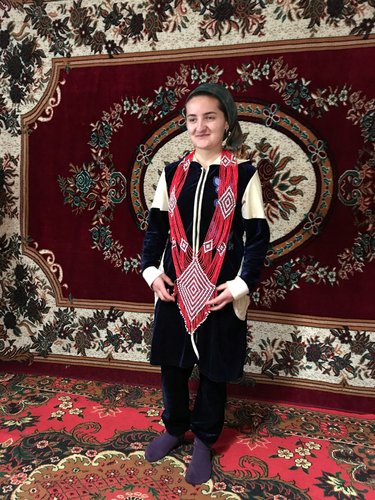
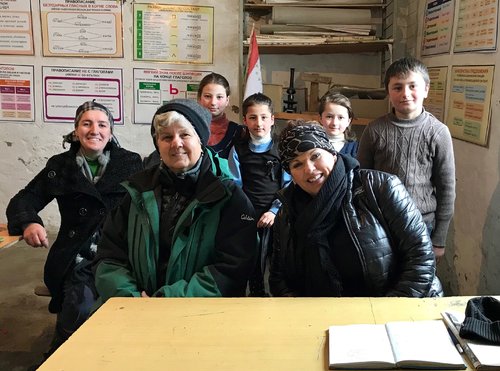
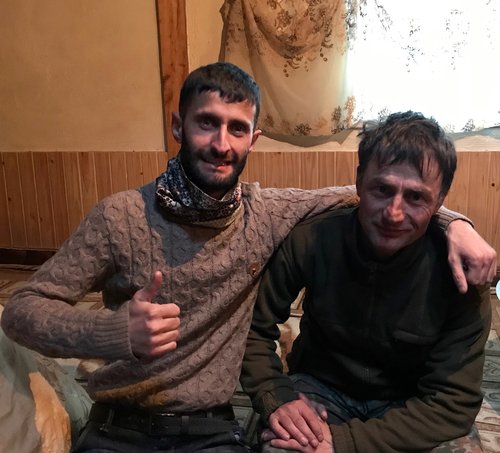
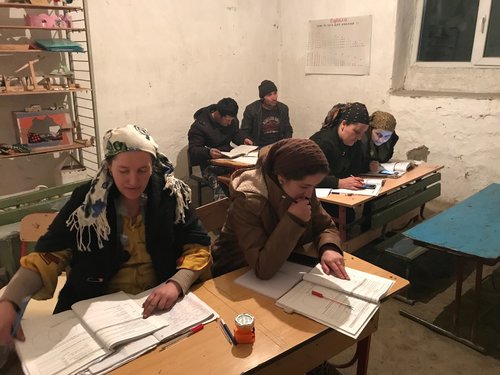
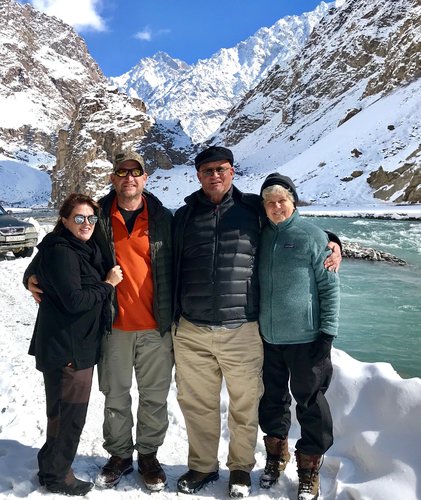
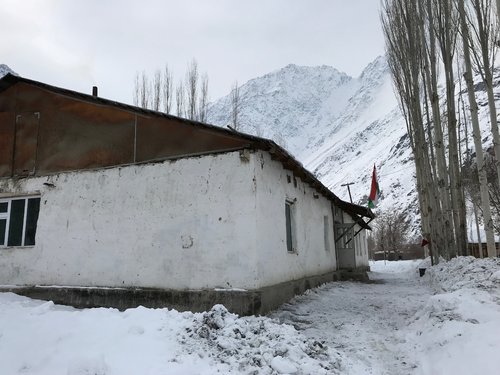
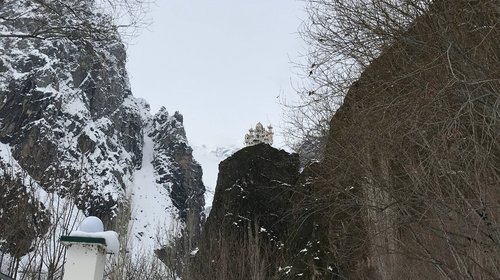
Why not? Looks like I set a precedent. They packed my pack for me too!Awesome story.
I'll come up to MT this year and carry your rifle around the woods for you